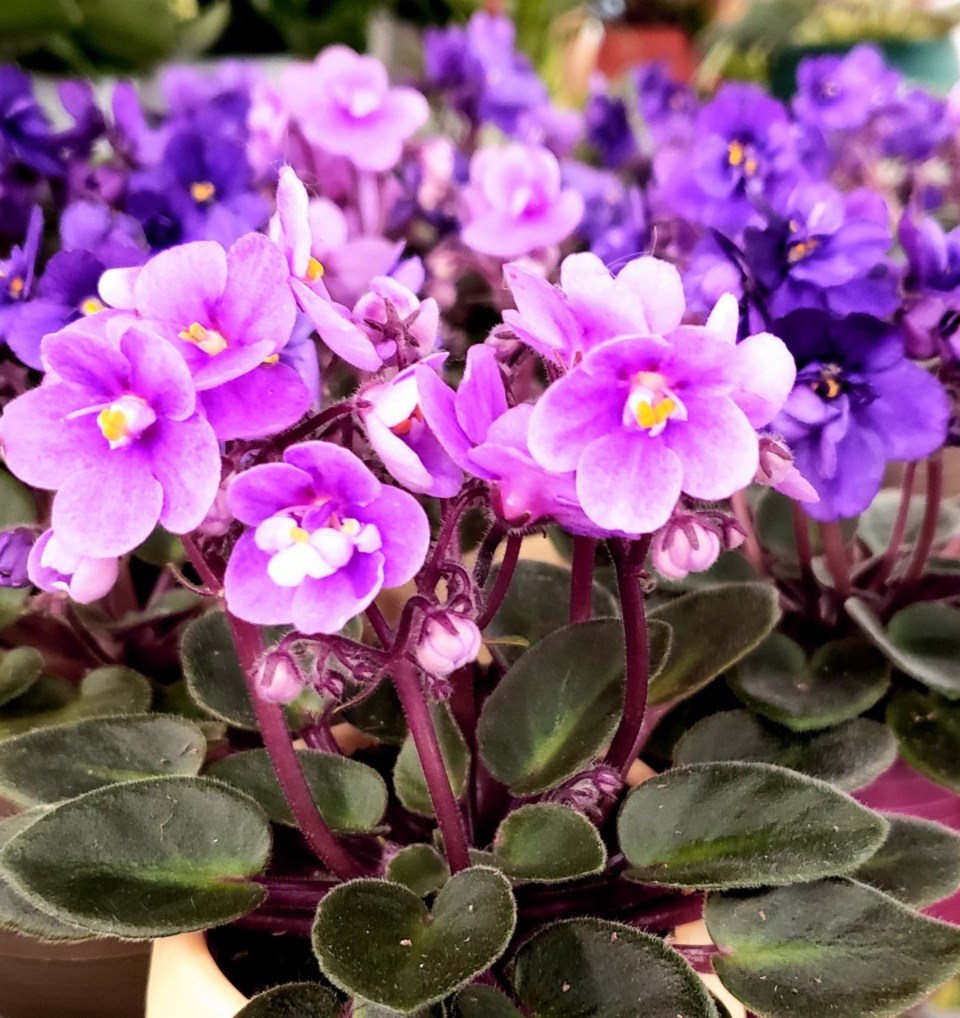African violets are “the perfect houseplant” as they bloom year-round with no specific flowering season. They are of tropical origin and so can tolerate, and thrive even, in heated houses; they have thick hairy leaves which protect them against water loss; they can live with the lower winter light levels and do not want even the direct sunlight of January days. And they are woefully easy to propagate.
Care of African Violets is simple. The growing mix, which can be a peat-based houseplant mix, should be slightly damp. Wait until the soil is dry to the touch before watering, as they do not do well if kept too moist. Use a complete fertilizer in a dilute form with each watering. As with most houseplants, they prefer slightly cooler nights than the daytime temperature.
African violets can tolerate lower light levels than many other flowering plants but bright light is needed for flowering. Sunny south or west windows are too bright and will cause leaf burn. Even our low light in the winter can sometimes be too bright. The plants are happiest on an east or north window but watch for cold drafts in the wintertime. Windows are not necessary for successful growing and flowering.
If you are using grow lights, mature plants should be at least 10 inches away from the light while started cuttings can be 6-8 inches. If the plant is too close to the light, the growth will be very dense, compact, and bleached out. Like any other plant, violets will tell you if they are lacking light. The leaves will turn toward the light and a long stem develops. If the light source is not directly overhead, turning the plant a quarter turn each time you water it will keep the plant balanced.
A large part of the charm of African violets is that they seem to attract few pests or diseases. Mealy bugs are the most likely pests and they appear on the undersides of leaves and at leaf axils. Dabbing them with a brush dipped in rubbing alcohol works but it may be easiest to simply start a new plant from a leaf cutting that you have carefully cleaned. African violets do best in ceramic or plastic pots. They do not like the salts which develop over time in clay pots and any leaves touching the pot rim will wilt and rot.
Propagation is very simple. Break off a healthy leaf, cut the stem at a 45-degree angle, and stick in water until roots form. Once roots are formed, the leaf is planted, roots and all, in a small pot and set under grow lights. Within a few weeks, the first baby plant will emerge. Usually, within 3-4 weeks, you will have anywhere from 2-6 baby plants poking up around the leaf stem. When the plantlets are about halfway up the leaf stem, separate the plantlets so that there is one stem with attached roots. Pot these into small containers and set them back under the grow lights. Usually, within 8-10 months, they will flower.
Hanbidge is the Lead Horticulturist with Orchid Horticulture. Find us at ; by email at [email protected]; on Facebook @orchidhort and on Instagram at #orchidhort. Tune into GROW Live on our Facebook page or check out the Youtube channel GROW




